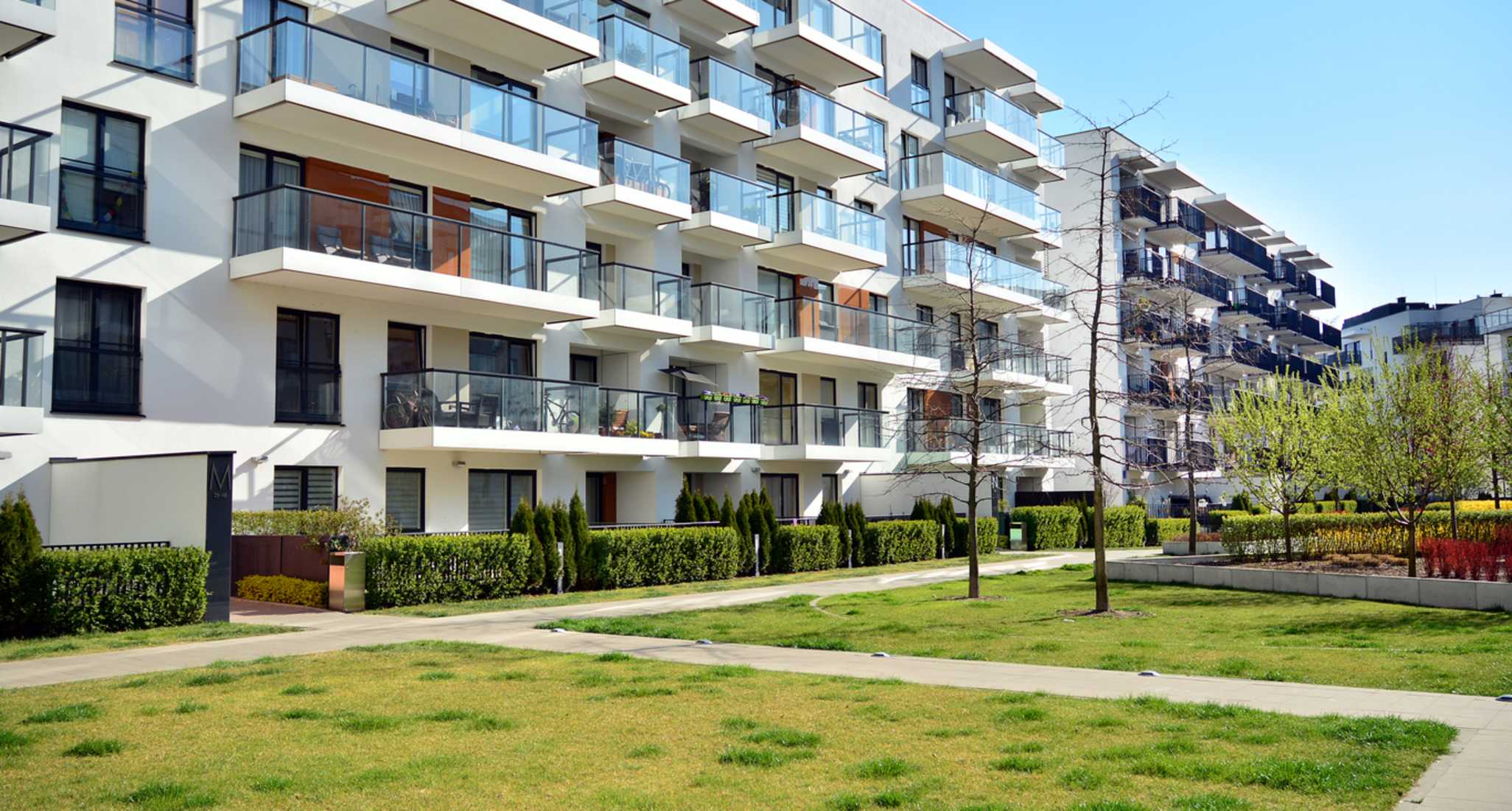Financing an investment property: information on mortgages for investments
Investment properties are an attractive alternative to conventional investments. But how can you finance them? What challenges do they involve? Comparis answers key questions about investment properties.

18.08.2025

iStock/Grand Warszawski
1. What is an investment property?
Investment properties are properties that you purchase primarily as an investment. The goal when buying an investment property is to make a financial profit through rental income and potential increases in value.
As a rule, these properties are not occupied by the owner, but rented out. Typical investment properties include apartment buildings or commercial properties.
Are you looking for a suitable investment property?
On Comparis, you can find investment properties from the biggest property websites in Switzerland.
2. How can you finance an investment property in Switzerland?
In principle, an investment property is financed in the same way as financing a home. However, the requirements for the mortgage are stricter. When buying a residential investment property, you usually have to meet the following financing conditions:
You need to be able to pay 25% of the property value upfront (down payment). For comparison, you need a down payment of 20% to buy a home to live in yourself.
You may not make an early withdrawal from your pension savings to come up with the down payment. An exception applies if you live in an apartment within your investment property. In that case, you can use pension savings to finance this part of the purchase.
You must pay down the mortgage to 65% within 10 years (amortization).
Good to know
Finance is available not only from banks, but also from pension funds, insurance companies and investment foundations. Mortgage rates can vary significantly from one lender to another. Our mortgage partner HypoPlus can help you find the right financing solution.
Calculate the affordability of an investment property
Unlike when buying a home you plan to live in, employment income is not taken into account when calculating the affordability of an investment property. In this case, the decisive factor for affordability is the rent surplus. In short, your rental income must cover all imputed costs (mortgage interest, amortization, maintenance and ancillary costs).
The property is considered affordable if the rent surplus is positive. Moreover, you need a sufficient reserve to ensure that the property continues to cover its costs even if there is a vacancy or interest rates fluctuate.
The following table shows an affordability calculation for an investment property. Assumptions:
You are buying a multi-family property with five apartments for two million francs (market value).
You have a down payment of 500,000 francs (25% of the market value).
You take out a mortgage worth 1.5 million francs (75% of the market value).
You rent out the apartments for 2,500 francs per month each.
| Item | Annual costs/income | Explanation |
|---|---|---|
| Rental income | CHF 150,000 | 5 apartments at CHF 2,500 per month each |
| Imputed interest of 5% on the mortgage | – CHF 75,000 | 5% of CHF 1.5 million |
| Amortization | – CHF 20,000 | Amortization of the mortgage from 75% (CHF 1.5 million) to 65% (CHF 1.3 million) within 10 years |
| Ancillary costs (1% of the market value) | – CHF 20,000 | |
| Rental income minus annual mortgage costs | + CHF 35,000 | Rent surplus is positive = the property is affordable |
In the example calculation, you have a sufficiently large annual rent surplus (35,000 francs). The property is therefore able to cover its costs.
3. How high should the gross yield on an investment property be?
The gross yield is an important key figure when preparing an initial assessment of the profitability of a property. It gives an overview of how financially viable a property is. However, ongoing operating costs are not taken into account.
The gross yield is the ratio of the annual rental income to the purchase price. The formula is: rental income / purchase price × 100.
In the previous calculation example, the gross yield is 7.5% (150,000 francs / 2 million francs × 100). As a rule of thumb, the gross yield should be at least 4–5%.
What is considered a decent gross yield?
As a rule of thumb:
Less than 3%: low gross yield (usually only acceptable if you expect the property to increase in value)
3–4%: average gross yield (typical yield in popular locations)
4–5%: good gross yield (the usual minimum requirement set by many financial institutions)
Over 5%: very good gross yield, but often involves increased risk (e.g. worse location or the need for renovation)
Good to know: don’t make your investment decision based on the gross yield alone. Also consider the net yield, the location and the necessary reserves to cover the risk of vacancy.
4. Reference rate for tenancies
The reference rate is very important for lessors of investment properties: if the reference rate rises, you may increase the rent. If it falls, you’ll have to reduce the rent at the request of the tenants.
The reference rate plays a decisive role for investment properties because it affects rental income in financial plans. Are you planning to buy an investment property? If so, you should monitor the development of the reference rate and consider it in your financing plan.
The reference rate is the average interest rate of all mortgages in Switzerland. It is published every quarter by the Federal Office for Housing. Currently, the reference rate is 1.5% (valid since 2 June 2025).
5. What are the advantages of an investment property?
An investment property offers a number of financial advantages (list not exhaustive):
Extra income: rent from a property provides an additional source of income each month.
Protection from inflation: property and rental income offer a certain level of protection against inflation. This is because real estate usually does not lose value in the event of inflation.
Increases in value: if demand for housing is higher than supply, property prices tend to go up.
Stable investment: the value of property fluctuates less severely than share prices. As a result, properties are considered relatively safe investments that are resilient to crises.
6. What are the challenges of an investment property?
Besides the advantages, investment properties involve a number of challenges that you should consider before buying (list not exhaustive):
Cluster risk: if you invest a large part of your assets in an investment property, there is a risk of substantial losses if the property loses value.
Vacancy risk: depending on the region, location and rent levels, there is a risk of the property being vacant. This reduces the yield you earn while costs remain the same.
Maintenance and renovation: a property needs to be managed. You can do this yourself or outsource it to a professional management company for a fee. Properties also cost money to maintain and may have to be renovated.
Interest rate risk: if mortgage rates rise, your ongoing costs will increase. In extreme cases, this can jeopardize the financial viability of the property – especially with a high loan-to-value ratio.
7. Frequently asked questions about financing investment properties
On Comparis, you can find a variety of investment properties, such as apartment buildings, condominiums and commercial properties.
Are you thinking about buying an investment property? Then you should consider the following points for the property to generate a sustainable income and an increase in value (list not exhaustive):
Location: the location is a decisive factor in determining the rent. Location-related factors include the economic attractiveness of the region, public transport connections and the educational infrastructure. Usually, the better the location, the higher the purchase price.
Tenancy law: tenancy regulations in the different cantons affect the attractiveness of property investments. For example: in Geneva, you are not allowed to increase rents arbitrarily after a renovation.
Building structure: form your own impression of the condition of the property. Find out what renovation and maintenance work will be necessary. Request a list of the required renovation and modernization work in writing. Also, seek the advice of a property expert.
Purchase price: the purchase price should be appropriate in relation to the location, condition and expected rental income.
You must pay down the mortgage on an investment property to 65% of the market value of the property within 10 ten years (amortization). For example: in the case of a mortgage for 75% of the market value, you must amortize 10% within 10 years.
For comparison, the amortization period is 15 years for a home that you live in yourself.
For investment properties, banks typically charge a premium on the standard interest rate. This is because the risk is considered higher than for owner-occupied residential property. This article gives you an overview of the current mortgage rate trends.
This article was first published on 03.03.2022




